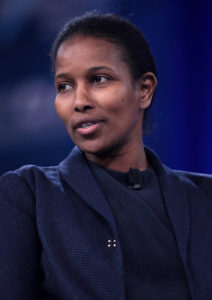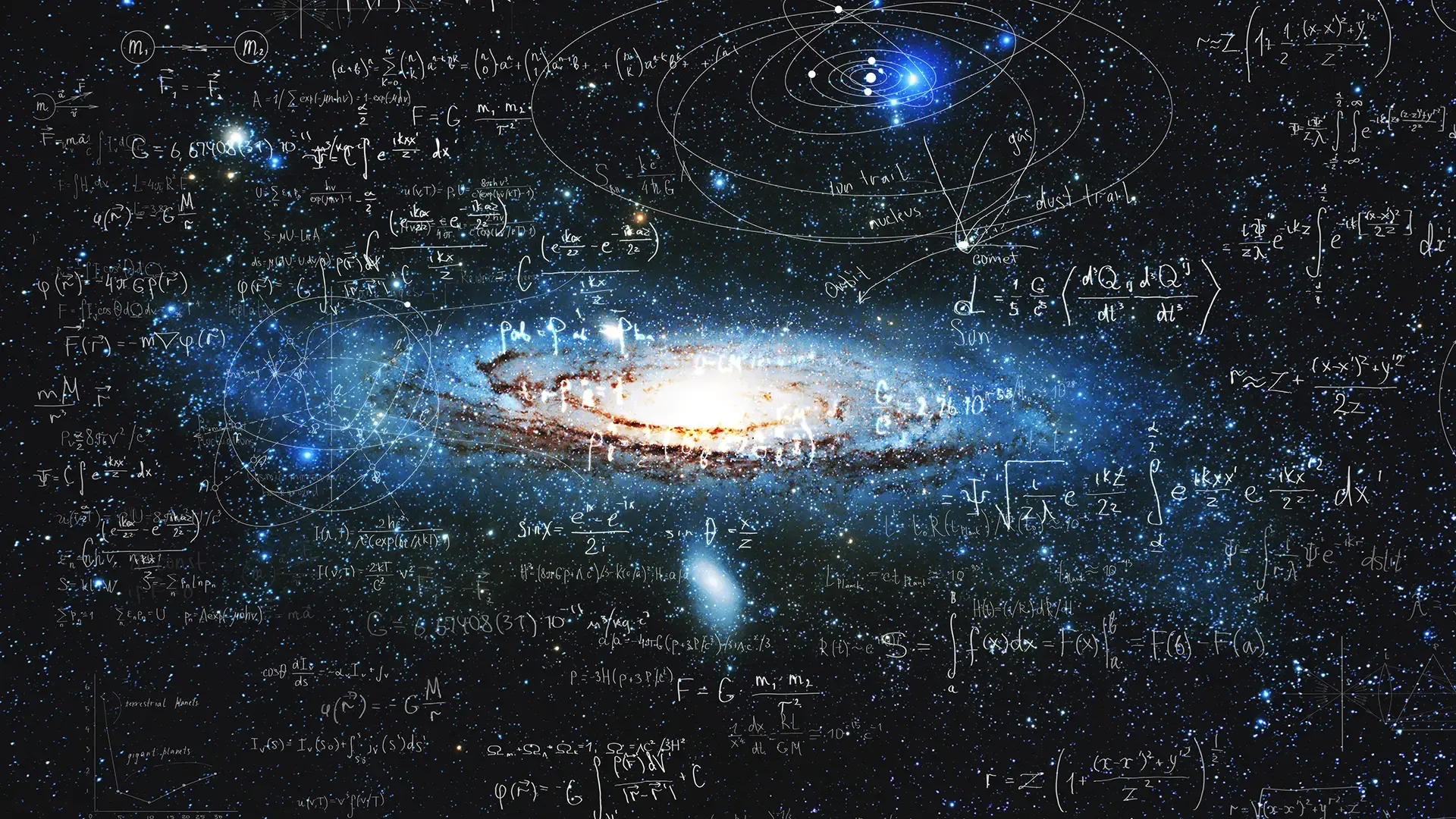Signs of the Final Harvest


Ayaan Hirsi Ali has publicly stated that she is a Christian. Born in Somalia, Ali was a Muslim, but became a strong critic of Islam and later became a central figure in the New Atheism. She became disenchanted with atheism and has now professed adherence to the teachings of Jesus. Her journey has been long. Her thoughtful essay on UnHerd online media site explains much of her thinking.
Leaving Islam is considered a serious offense. In 2004 Ali collaborated on a short film with Theo Van Gogh titled Submission. It was a frank depiction of the oppression of women under Shariah law. The release of the film quickly yielded death threats.
Van Gogh was brutally murdered on an Amsterdam street on November 2, 2004. The attacker, Mohammed Bouyeri, shot Van Gogh once from a distance, and then at short range as the director lay wounded on the ground. He was already dead when Bouyeri cut his throat with a large knife and tried to decapitate him. Bouyeri left a letter pinned to Van Gogh’s body with a small knife. The letter was a death threat to Ayaan Hirsi Ali.
From Islam To Atheism
Several factors caused Ali to leave Islam. The 9/11 attack on America was one thing. Ali felt it was wrong and something she could not support. Islam’s oppression of women and a deep-seated disdain for non-Muslims, especially Jews, created more repugnance in her heart for Islam. In her essay, she expresses the thought that the West continues in denial about the dangers of radical Islam and the possibility of a religious war. “We have seen a similar tendency in the past five weeks, as millions of people sympathetic to the plight of Gazans seeking to rationalize the Oct. 7 terrorist attacks as a justified response to the policies of the Israeli government.”
“Why I Am Not a Christian”
In 2002, Ali discovered Bertrand Russell’s 1927 lecture titled “Why I Am Not a Christian.” Russell asserts that religion is based primarily on fear—something that resonated with Ali, who came from a strict Islamic background. Ali confessed that she was struggling with a deep-seated fear of being punished in the afterlife. Russell’s assertion brought peace: “When I die, I shall rot.”
Yet Ali did not have the peace that she sought. “The ‘God hole’ left in the human heart has not gone away but rather has been filled by a jumble of irrational, quasi-religious dogma. The result is a world where modern cults prey on the dislocated masses, offering them spurious reasons for being and action—mostly by engaging in virtue.” Ali asserts that the virtue that is heralded is fighting for “a victimized minority or our supposedly doomed planet.”
Ali relates that the high-profile atheists that she met with, like Christopher Hitchens and Richard Dawkins, were clever and fun to be with. However, as she looked at the news and followed the collapse of society and the rise of authoritarian regimes like those in Russia and China, plus the rise of worldwide Islam and the “viral spread” of “woke” ideology, the benefits of atheism seemed inadequate to combat the destructive beliefs of modern civilization.
She writes, “We endeavor to fend off these threats with modern, secular tools: military, economic, diplomatic and technological efforts to defeat, bribe, persuade, appease or surveil. And yet, with every round of conflict, we find ourselves losing ground.”
I think my readers can identify with that. We have supposedly improved the quality of life through technology, psychology, sociology, and several other grand schemes that will make life more livable, but despite our best efforts, the headlines become more ominous.
Ali seems to anticipate some evangelical critics who might say she is approaching the Christian faith as a theoretician or philosopher. However, I think it is significant that she writes: “I would not be truthful if I attributed my embrace of Christianity solely to the realization that atheism is too weak and divisive a doctrine to fortify us against our menacing foes. I have also turned to Christianity because I ultimately found life without any spiritual solace unendurable—indeed, very nearly self-destructive.”
For Ali, her faith has personal elements to it, like it does for all of us. But I heartily approve of the conviction that her faith is not just limited to a “friendship with Jesus.” Yes, Peter did say, “Lord, to whom shall we go? Thou hast the words of eternal life” (John 6:68). I don’t want to trample underfoot the individual’s personal relationships with the Son of God. But I also believe one of the weaknesses of much evangelicalism in America is that many Christians have not developed a consistent, Christian-theistic worldview. Whether or not we admit it, we are battling ideologies and systems of erroneous thinking. We are to be pulling down “strong holds … and bringing into captivity every thought to the obedience of Christ” (2 Cor. 10:4–5).
Not a Passive Faith
In a day of societal confusion, one of the most important passages in Scripture reminding us of our identity and purpose on Earth is Genesis 1:26–28. We were made in God’s image to create, to produce, to invent. We were made to be creative and productive, yes, even to be the Lord’s entrepreneurs! This is not a passive faith but a faith that propels us into every nook and cranny of culture and human existence. While we all love John 3:16, there are many more verses, thoughts, and ideas in Scripture.
Ali writes, “We can’t withstand China, Russia, and Iran if we can’t explain to our populations why it matters that we do. We can’t fight woke … and we can’t counter Islamism with purely secular tools.”
Where shall we look for a unifying principle of life that gives life the meaning that we need? Ali writes, “And fortunately, there is no need to look for some new-age concoction of medication and mindfulness. Christianity has it all.”
While Ali admits that she has “a great deal to learn about Christianity,” she indicates that she understands that it is “a better way to manage the challenges of existence than either Islam or unbelief had to offer.”
For those of my readers who would like to learn more about Ali and her penetrating analysis of contemporary issues that divide humanity, I would suggest the YouTube video titled, “What do wokeness and Islam have in common?” In short, Ali answers that they are both totalitarian. Her statements and courageous beliefs like this have led Brandeis University to deny her an honorary degree. She is also critical of Black Lives Matter and says that the group has raised a lot of money after the George Floyd murder, but BLM has used the funds on themselves. Ali has the right enemies.
I would also suggest that my readers pray for Ali that she would grow in grace and the knowledge of Scripture. What she reads about the Bible and those who mentor her are all critical to her grounding in the faith.
Ali faces danger from Islam, and is a target, along with her Scottish husband, Niall Ferguson, an author and historian.
Ali is also enraging the ProgressiveLeft, a group that finds her views “outrageous and divisive.” In addition, after being in ministry in a variety of formats for more than fifty years, I am concerned that she also faces harsh criticism from the extreme Christian Right. Fault may be found in her testimony because it does not have the usual evangelical buzzwords, or because she doesn’t use the correct translation of the Bible, or a dozen other issues. New Christians are tender. Please don’t crush them under heel.
Putting It All Together
As we look at our contemporary world, we see much that is evil and tragic. It seems that the dam holding back evil has collapsed and we are being buried alive in a tidal wave of depravity. The peddlers of this depravity want to destroy every manifestation of decency and the core beliefs that once made America great.
However, there is another group, growing in number and notoriety. It includes a group of perceptive thinkers and high-profile figures, like Ayaan Hirsi Ali—and also others like the “Son of Hamas,” Mossab Hassan Yousef, the son of the founder of Hamas. These are people who have found that Christianity has a slant on life that is truly appealing in its power to transform and to provide intellectually coherent answers to the big questions of human existence.
New York Times bestselling author Joel Rosenberg carefully details the amazing work of God in his 2009 book Inside the Revolution: How the Followers of Jihad, Jefferson & Jesus Are Battling to Dominate the Middle East and Transform the World. In the book Final Fire: Is the Next Great Awakening Around the Corner, a book which I co-authored with Tom Horn and Donna Howell, we document the rising wave of revival fires around the world.
Though at present the world is focused on the Middle East, we must not forget the work of God in Communist China. Though illegal, the unlicensed Underground Church is seeing a harvest of souls, as is documented in the book China and End-Time Prophecy: How God Is Using the Red Dragon To Fulfill His Ultimate Purposes. Author Eugene Bach (a pseudonym), ministers with the Underground Church. The back cover states that this volume “will show you why the completion of the Great Commission is inevitable and the return of Christ is unstoppable.” This New Year would be a good time to commit (or re-commit) our lives to world evangelism.




Leave a Reply